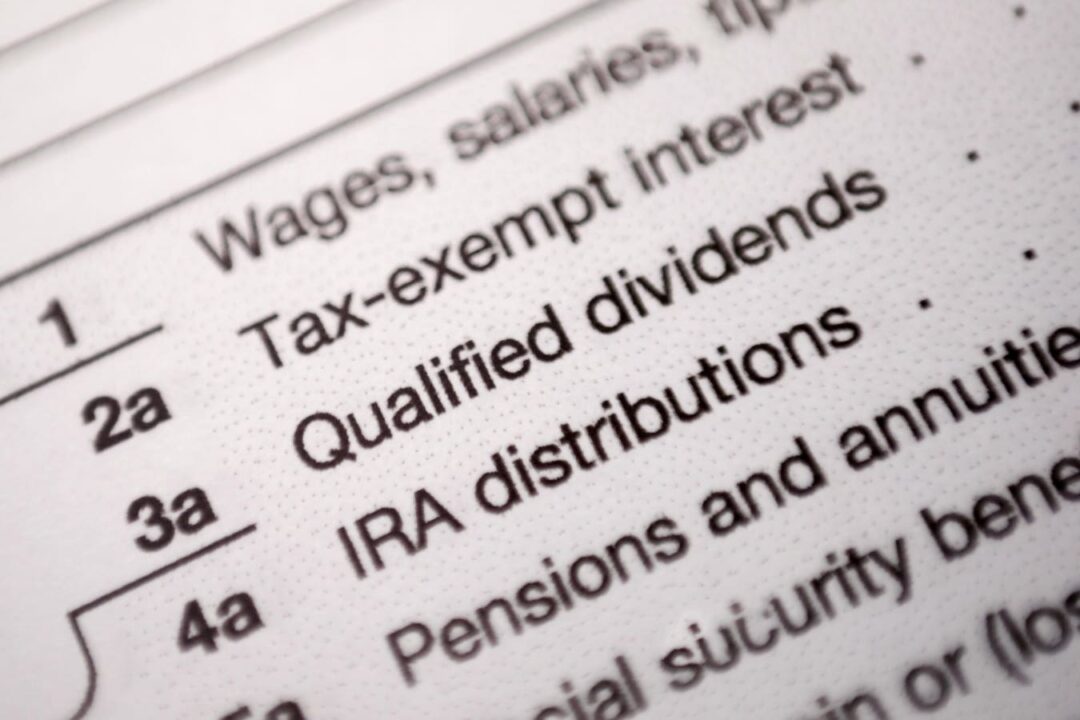An Internal Revenue Service 1040 Individual income tax form for 2021 arranged in Louisville, Kentucky, U.S., on Tuesday, April 12, 2022. Refund sizes in some cases have been up by nearly 25% compared with last year due to pandemic relief programs and rising wages. Photographer: Luke Sharrett/Bloomberg
© 2022 Bloomberg Finance LP
Why Proactive Tax Planning Matters
With sweeping new tax reforms just signed into law, proactive tax planning could be the single biggest factor in reducing your lifetime tax burden. According to Gallup, an increasing number of Americans want to pay less in taxes. Tax planning is a year-round, methodical effort to minimize taxes paid to the IRS and other tax agencies.
A Complex and Constantly Changing Tax Landscape
The federal tax code is extremely complicated and difficult to understand. Each state (and the District of Columbia) with an income tax has its own tax code. These tax codes change most years and retroactive tax changes have become more frequent.
Understanding the One Big Beautiful Bill (OBBB)
Congress passed—and President Trump signed into law—One Big Beautiful Bill (OBBB), officially titled An Act to Provide for Reconciliation Pursuant to Title II of H. Con. Res. 14 on July 4th, 2025.
OBBB makes large and complicated changes to the federal tax code; some of which will affect 2025 income taxes filed in 2026. Overall, these changes will lower federal income taxes for many Americans. Per a study from the Tax Foundation, OBBB will decrease taxes collected by approximately 5 trillion dollars from 2025 – 2034.
Who May Lose Under the New Law
Potential losers include:
• Those who gamble
• Those who purchase electric vehicles – the tax credit expires 9/30/2025
• Those who are improving their primary residence in an energy efficient manner; those tax credits end 12/31/2025
Who Stands to Benefit
Potential winners include:
• Many seniors who are 65 years old or older
• Many people compensated by receiving tips, such as hairdressers and wait staff
• Many who receive overtime pay
• Some people who purchased a new car in 2025
• Certain business owners that purchase a lot of capital equipment
• Certain real estate investors
• Many companies that do a lot of research and development in the United States
Key Tax Planning Strategies for Individuals
Basic strategies for individuals include:
• Maximizing retirement contributions
• Maximizing Health Savings Account contributions if you qualify to contribute
• Choosing when to liquidate assets with capital gains
• In some cases contributing to other tax-advantaged accounts such as 529 plans
• Choosing tax-efficient investments
Smart Tax Moves for Businesses
For businesses, essential tactics include:
• Choosing the correct retirement plan and maximizing it
• Ensuring you deduct all business expenses allowed
• Choosing when to purchase capital assets and when to depreciate those assets
• Ensuring your business utilizes the correct tax entity. For example C Corporation, S Corporation, Partnership, or Sole Proprietorship
Final Thoughts: Plan Ahead to Save More
The new tax law is changing tax planning significantly and there are many opportunities for tax planning. If you want to pay less in income taxes over your lifetime; work with a qualified advisor to identify which new strategies you can act on before the year ends.
This article was published by Mike Sylvester, CPA on 2025-07-31 15:53:00
View Original Post






